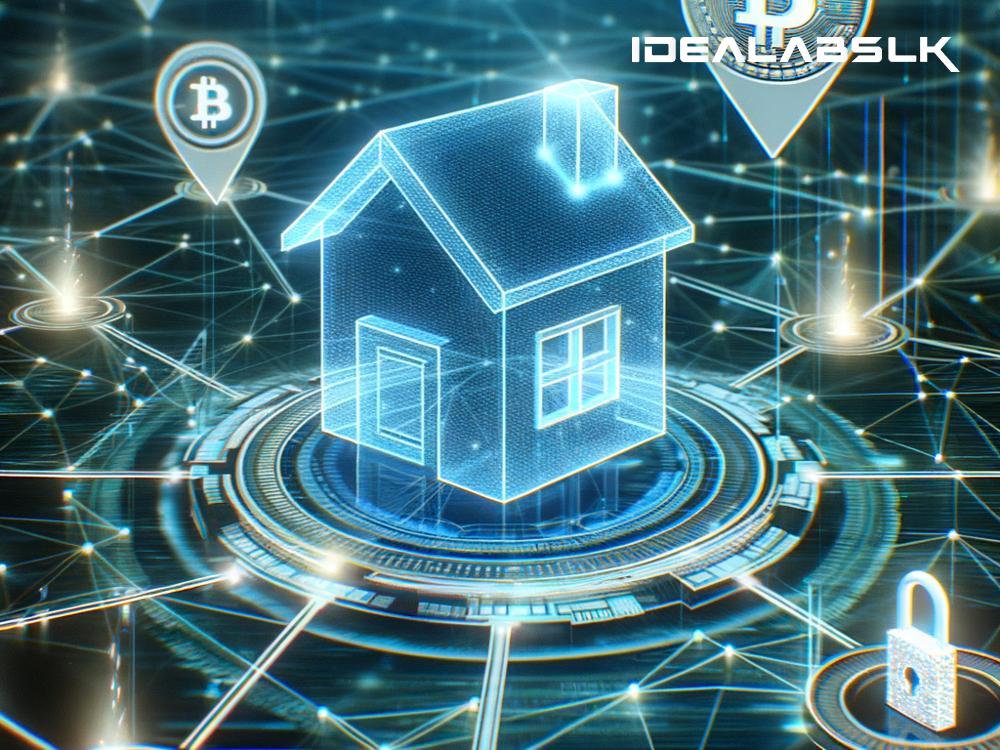Blockchain in Real Estate: The Future of Transparent Property Records
In recent years, the real estate market has begun exploring innovative technologies to make buying and selling properties more transparent, secure, and efficient. Among these advancements, blockchain technology stands out as a game-changer for managing property records and transactions. But what is blockchain, and how can it reshape the real estate industry? Let's dive in and understand this revolutionary technology in simple English.
Understanding Blockchain
Imagine blockchain as a digital ledger, not unlike the ledger your grandparents might have used to record their grocery expenses, except it's online and incredibly secure. This ledger is shared across a network of computers, making it nearly impossible to tamper with. Each entry in this ledger is called a "block," and every block is linked to the previous one, forming a chain—hence the name "blockchain."
The beauty of blockchain lies in its transparency and security. Everyone in the network can see the transactions recorded in the ledger, but they can't change them without the consensus of the majority. This makes it a perfect tool for recording property transactions, where trust and transparency are paramount.
Benefits of Blockchain in Real Estate
Transparent Property Records
Blockchain introduces unprecedented levels of transparency to the real estate sector. Every transaction, including the history of a property from its construction to the present day, can be recorded on a blockchain. This means potential buyers can easily verify property details, ownership history, and even if the property was part of legal disputes. It's like having a crystal-clear window into the property's past.
Reduced Fraud
Real estate fraud is a significant concern, with forged documents and impersonation being common tactics. Blockchain's secure nature makes it almost impossible to alter records, offering a robust solution to mitigate such fraud. When property records are stored on a blockchain, verifying their authenticity becomes straightforward, drastically reducing the chances of fraudulent transactions.
Speedier Transactions
Buying or selling a property involves a mountain of paperwork and legal checks, which can be time-consuming. Blockchain can expedite this process by providing a single, immutable record of property ownership and rights. Smart contracts, which are self-executing contracts with the terms directly written into code on the blockchain, can automate many of these transactions, cutting down the time and cost associated with real estate deals.
Reduced Costs
Transactional costs in real estate are notoriously high, often due to the numerous intermediaries involved, including lawyers, brokers, and banks. Blockchain technology can streamline these interactions by enabling direct peer-to-peer transactions, potentially reducing or eliminating the need for middlemen and, consequently, their fees.
Real-World Applications and Future Prospects
Several real estate blockchain projects have started to emerge around the world. For instance, some countries are experimenting with blockchain-based land registries to enhance the security and efficiency of land and property recording processes. Additionally, startups are developing platforms where buyers, sellers, and renters can transact properties directly, using blockchain to ensure the transactions are secure and transparent.
The future of blockchain in real estate looks promising. As the technology matures and gains wider acceptance, we could see a real estate market that is more transparent, efficient, and secure. However, widespread adoption of blockchain in real estate will require overcoming regulatory, technical, and adoption challenges.
For instance, governments and regulatory bodies need to recognize blockchain transactions as legally valid. There's also the need for a technological infrastructure that supports large-scale, blockchain-based real estate transactions. Finally, stakeholders in the real estate market, including buyers, sellers, and professionals, must be willing to embrace this new technology.
In Simple Words
Blockchain has the potential to revolutionize real estate transactions by making them more transparent, secure, and efficient. It can provide clear property records, reduce fraud, speed up transactions, and lower costs by cutting out middlemen. While there are hurdles to overcome, the future of real estate looks brighter with blockchain technology.
In conclusion, blockchain in real estate is not just a passing trend; it's a glimpse into the future of property transactions. By embracing this technology, the real estate sector can make significant strides towards a more transparent, trustworthy, and user-friendly market. Whether you're a buyer, seller, or industry professional, keeping an eye on the developments in blockchain technology could well be worth your while.

